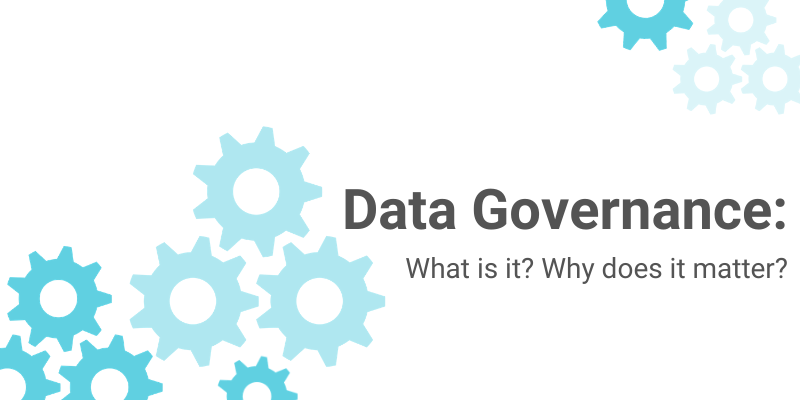
Making marketing decisions based on incorrect or incomplete data leads to wasted media spend and marketing budget. In fact, it’s estimated that 40% of digital media spend is ineffective*. But well-defined and carefully implemented data governance allows marketers to become effective data-driven organizations.
What is data governance?
Data governance is a framework that establishes rules by which an organization uses its data to ensure that the correct data is informing high-value business functions. It encompasses the people, processes, rules, organizational structures and technology required to develop the defined handling of an organization’s data across the entire business.
It’s important to note that data governance is different than data quality. They are complementary, yet separate functions. Data quality focuses on collecting and cleansing data to make sure it’s complete, up-to-date, and accurate. Data governance ensures that quality data is systematically gathered and accurately reported according to defined rules so that marketers can make high-impact decisions.
Ignoring data governance can lead to inconsistencies in different systems across a business. It also causes complications with data misuse, integration errors, security vulnerabilities, hampers regulatory compliance, and lack of control.
Data governance increases the operational effectiveness, regulatory compliance, and overall impact of data-driven decision making, thus increasing the marketing spend ROI.
Why does data governance matter?
Ineffective data governance will lead to inconsistencies. And when marketers base their decisions on reported data, those inconsistencies will negatively impact the decisions being made.
Data governance helps break down data silos that are created when different teams, agencies, and geographies are not centrally coordinated. Most marketers concentrate on bringing in raw data and cleaning it up later, but you can save yourself a lot of headaches downstream if you build in quality checks before it enters your data lake or central data management platform.
A collaborative process takes place when data in all systems is handled according to defined rules. This is why establishing and monitoring global naming conventions is critical to have an accurate and complete understanding of the data you’re collecting. The key is to manage a balance between flexibility and data governance to drive operational efficiency.
Consider this, if your data comes in from different stakeholders, such as Facebook, facebook, FB, and Facebook.com, then without effective data governance, your results will be split, causing data integrity issues that will affect accuracy, reporting, and decision making, not to mention the time lost in cleaning up the data to get meaningful results.
With new data policies and regulations (GDPR and CCPA), now is the time to have data governance in place to make sure your data is handled properly. A data governance program defines and sets standards, which increases data consistency and compliance.
What is needed for data governance management?
A framework defines the rules, processes, and organizational structure needed for effective data governance. As part of MSIGHTS’ roadmap to successful data implementation, we help clients establish data governance and quality through these steps:
- Establish client ownership over all data sources (internal and external).
- Create global standards and processes, including naming conventions, tags, taxonomy, reporting, etc.
- Promote standards as necessary for consistency throughout the organization and its partners.
- Build in monitoring processes to ensure compliance and accountability.
Establishing data governance requires planning out specifications, such as documenting naming conventions and taxonomy, tags, and a data hierarchy to drive predictability and consistency. It requires creating global standards and processes, promoting standards as mandatory, and building monitoring processes to ensure compliance and accountability.
To learn more about how we can help you improve your data quality and governance, contact us today. Or if you want to read more about the importance of data quality and how data governance plays a role in that download our Data Quality Whitepaper.





 Sign In
Sign In




